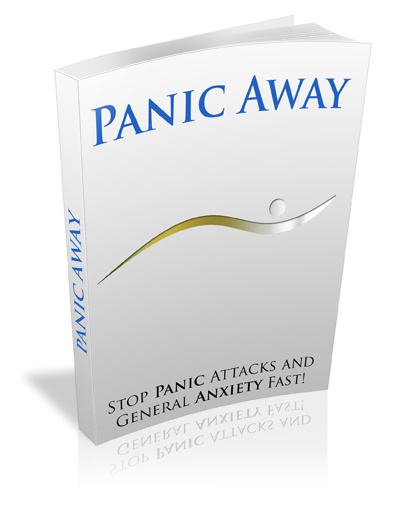Hello, my name is Sarah, and I know firsthand what it feels like to be trapped in the suffocating grip of anxiety attacks. The racing heart, the dizzying thoughts, and the overwhelming sense of fear can make even the simplest tasks feel impossible. It is a lonely and exhausting battle, one that can leave you feeling helpless and defeated.
But I want you to know that there is hope. Through my own journey, I have discovered the incredible power of meditation in reducing anxiety attacks and finding inner peace. Meditation has become my anchor, offering me solace and strength in the face of anxiety. It has taught me how to quiet the storm in my mind and connect with a sense of calm and clarity that I didn't think was possible.
Our Top Pick For Beating Panic Attacks

Stopping, and preventing, panic attacks is now even easier.
In this article, I will guide you through various meditation techniques that have proven effective in managing anxiety. Whether you are new to meditation or have dabbled in it before, these practices can help you find relief and take control of your anxious thoughts and feelings. Together, we will explore the benefits of meditation for anxiety, learn how it works to reduce anxiety, and discover the best meditation techniques for calming anxiety attacks. Are you ready to embark on this transformative journey with me?
Key Takeaways:
- Meditation is a powerful tool for reducing anxiety attacks and finding inner peace.
- Through meditation, you can learn to quiet the storm in your mind and connect with a sense of calm and clarity.
- This article will guide you through various meditation techniques to help manage and reduce anxiety.
- Together, we will explore the benefits of meditation for anxiety and discover the best practices for calming anxiety attacks.
- Are you ready to embark on this transformative journey to find relief and take control of your anxious thoughts and feelings?
Understanding the Effects of Anxiety
Anxiety can have both mental and physical effects on individuals. It manifests in various ways, causing excessive worry, difficulty concentrating, restlessness, fear or dread, overwhelming emotions, guilt or shame, intrusive thoughts, irritability, and a lack of enjoyment. These mental effects can significantly impact one's daily life and overall well-being, making it challenging to function optimally.
In addition to the mental effects, anxiety also has a range of physical symptoms. It can lead to a racing heart, muscle tension, shaking, dry mouth, dizziness, sweating, difficulty breathing, nausea, headaches, digestive problems, fatigue, and difficulty sleeping. These physical manifestations can further exacerbate the distress caused by anxiety, making individuals feel overwhelmed and out of control.
It's important to note that the symptoms of anxiety are real and can significantly impact an individual's quality of life. However, there are practical strategies that can help manage and alleviate these effects. One such strategy is meditation. By incorporating meditation practices into your daily routine, you can learn to calm your mind, reduce the physical symptoms of anxiety, and regain a sense of control and balance in your life.
How Meditation Reduces Anxiety
Meditation is a powerful practice that can help individuals reduce anxiety and find peace of mind. By stepping away from anxious thoughts and entering a state of calm and clarity, meditation activates the brain's relaxation response. This response counters the stress response, bringing the body back to equilibrium and reducing anxiety levels.
Regular meditation practice trains the brain to enter this relaxed state more easily, even in the face of stressors. By dedicating time to meditation each day, individuals can develop a sense of inner calm that stays with them throughout the day, helping them navigate challenging situations with greater ease.
One of the key benefits of meditation for anxiety is its ability to increase the production of feel-good chemicals in the brain. Serotonin and endorphins, often referred to as the “feel-good hormones,” promote a sense of well-being and happiness. By boosting the levels of these chemicals, meditation helps individuals experience greater emotional resilience and a more positive outlook on life.
Furthermore, meditation provides individuals with the tools to cultivate a sense of self-awareness and mindfulness. By becoming aware of their thoughts and emotions in a non-judgmental way, individuals can better understand and manage their anxiety. They learn to observe their anxious thoughts without getting caught up in them, allowing these thoughts to pass without causing unnecessary distress.
Overall, meditation is a valuable practice for reducing anxiety. It allows individuals to activate the relaxation response, increase the production of feel-good chemicals in the brain, and enhance emotional resilience. By incorporating meditation into their daily routine, individuals can experience a greater sense of calm, balance, and well-being.

Bringing Calm to the Chaos: Testimonial
“Meditation has been a game-changer for me in managing my anxiety. It has taught me to slow down, breathe deeply, and observe my thoughts without judgment. Through regular practice, I've developed a sense of inner calm and resilience that has transformed how I navigate through life's challenges.” – Sarah Thompson
Best Meditations for Reducing Anxiety
Anxiety can be overwhelming, but practicing meditation can be a helpful tool for managing and reducing its impact. There are various meditation techniques that can effectively ease anxiety and promote a sense of calm and well-being:
Mindfulness Meditation
Mindfulness meditation involves focusing your attention on the present moment, without judgment. By observing your thoughts and emotions without getting caught up in them, you can cultivate a sense of calm and detachment from anxiety-provoking thoughts.
Loving-Kindness Meditation
Loving-kindness meditation involves directing positive and compassionate thoughts towards yourself and others. By fostering feelings of love, kindness, and empathy, this practice can help reduce anxiety and promote well-being.
Body Scan Meditation
Body scan meditation involves systematically focusing your attention on different parts of your body, from head to toe. This practice promotes relaxation, body awareness, and grounding, which can help alleviate anxiety and tension in the body.
Guided Meditation
Guided meditation involves listening to a recorded meditation or following along with a meditation app or video. This form of meditation provides guidance and structure, making it easier to relax and focus, even for beginners.
Breath Awareness Meditation
Breath awareness meditation involves paying attention to your breath as it flows in and out. By anchoring your attention on your breath, you can promote relaxation and ease anxiety as you focus on the present moment.
Progressive Muscle Relaxation
Progressive muscle relaxation involves tensing and releasing different muscle groups in your body to release tension and promote relaxation. This technique can help reduce anxiety and physical symptoms associated with stress.
Exploring these different meditation techniques and finding the ones that resonate with you the most can be key to effectively reducing anxiety. Whether you prefer a structured practice or a more flexible approach, incorporating meditation into your routine can bring about significant improvements in your overall well-being.
Tips for Meditating When Feeling Anxious
When practicing meditation with anxiety, it's important to approach it with understanding and patience. Here are some helpful tips to enhance your meditation experience:
- Let go of expectations: Release any preconceived notions or pressure about how your meditation session should go. Embrace the practice as a journey, allowing yourself to be present in the moment.
- Prepare yourself beforehand: Create a calm and soothing environment for your meditation. Find a quiet space, dim the lights, and eliminate distractions to set the stage for a peaceful meditation experience.
- Start with a body scan: Begin your meditation by focusing on your body. Take a few moments to scan your body from head to toe, noticing any areas of tension or discomfort. By bringing awareness to your body, you can release tension and promote relaxation.
- Avoid judgment of intrusive thoughts: Accept that intrusive thoughts may arise during meditation, especially if you're feeling anxious. Rather than judging or criticizing these thoughts, practice observing them without attachment or judgment. Allow them to come and go, like clouds passing through the sky.
- Start small and gradually increase meditation time: If you're new to meditation or feeling particularly anxious, it's helpful to start with shorter sessions and gradually increase the duration over time. Begin with just a few minutes and gradually work your way up to longer meditation sessions.
- Turn to guided meditations: Guided meditations can be a valuable resource, especially when you're feeling overwhelmed or are new to meditation. They provide structure and guidance, helping you stay focused and engaged in the practice. There are many apps and online resources available with a wide variety of guided meditations to choose from.
Remember, meditation is a personal practice, and it's important to find what works best for you. Be kind to yourself and embrace the journey of self-discovery through meditation.

Expert Tip:
“Meditation is not about trying to get rid of anxiety or other thoughts and feelings. It's about creating a space where we can observe them with kindness and curiosity.” – Dr. Kayla Mitchell, Meditation Instructor
The Science Behind Meditation for Anxiety
Scientific studies have revealed the fascinating connection between meditation and anxiety reduction. Through various mechanisms, meditation influences the brain and body, providing relief from anxious thoughts and feelings. Understanding the science behind meditation for anxiety can help us appreciate its effectiveness as a tool for mental well-being.
One of the key effects of meditation is the activation of the relaxation response in the brain. This response helps calm the overactive alarm system responsible for anxiety. By consciously focusing on the breath, bodily sensations, or a specific object of attention, meditation induces a state of deep relaxation and tranquility. This physiological shift not only soothes anxious thoughts but also counteracts the stress response, bringing the body back to a balanced state.
“Meditation induces a state of deep relaxation and tranquility, soothing anxious thoughts and counteracting the stress response.”
In addition to activating the relaxation response, meditation has been found to increase the production of feel-good chemicals in the brain. Serotonin and endorphins, known as neurotransmitters that promote feelings of happiness and well-being, are released during meditation. This increase in feel-good chemicals can result in an improved mood and overall sense of positivity, which can help reduce anxiety levels.
Furthermore, regular meditation practice enhances emotional resilience. By consistently engaging in meditation techniques, individuals cultivate the ability to navigate through stressful situations with greater ease. Meditation strengthens the brain's capacity to adapt and respond effectively to challenges, improving one's emotional well-being and decreasing vulnerability to anxiety.
The science behind meditation for anxiety provides a solid foundation for its effectiveness in reducing anxious thoughts and promoting mental well-being. By activating the relaxation response, increasing the production of feel-good chemicals, and enhancing emotional resilience, meditation offers a powerful and natural approach to managing anxiety.
The History and Types of Meditation
Meditation has a rich history spanning thousands of years. It originated as a practice to explore the depths of sacred and mystical forces that govern life. Over time, meditation has evolved into a powerful tool for relaxation and stress reduction.
Today, there are various types of meditation that cater to different aspects of the mind and body. Let's explore some of the most popular types:
Mindfulness Meditation
Mindfulness meditation involves focusing one's attention on the present moment, observing thoughts and sensations without judgment. It promotes a sense of calm and awareness.
Loving-Kindness Meditation
Loving-kindness meditation cultivates feelings of compassion, empathy, and love towards oneself and others. It helps foster positive emotions and enhance overall well-being.
Mantra Meditation
In mantra meditation, practitioners repeat a word or phrase (mantra) to quiet the mind and induce a state of deep relaxation. It can be particularly effective for reducing anxiety.
Breath Awareness Meditation
Breath awareness meditation involves focusing on the breath as a point of focus. It helps increase mindfulness and center the mind, promoting a sense of inner calm.
Qigong
Qigong is a Chinese practice that combines movement, breath control, and meditation to promote physical and mental well-being. It emphasizes the flow of energy (qi) in the body.
Tai Chi
Tai Chi is an ancient Chinese martial art that combines gentle, flowing movements with deep breathing and meditation. It promotes balance, flexibility, and relaxation.
Yoga
Yoga is a holistic practice that combines physical postures, breath control, and meditation. It helps improve flexibility, strength, and overall mind-body connection.
The variety of meditation types ensures that individuals can find a practice that resonates with their needs and preferences. Whether it's the focused attention of mindfulness meditation, the compassion cultivated through loving-kindness meditation, or the deep relaxation of qigong, each type offers unique benefits for reducing anxiety and promoting overall well-being.

Mindfulness-Based Stress Reduction (MBSR)
Mindfulness-Based Stress Reduction (MBSR) is an 8-week program developed by Jon Kabat-Zinn that focuses on using mindfulness practices and movement exercises to help individuals cope with stress and reduce anxiety and depression.
This program emphasizes mindful awareness and has been scientifically proven to be effective in reducing symptoms of anxiety and panic disorders. It provides practical tools for relaxation and coping with daily stresses and encourages a non-judgmental and present-focused mindset.
The Benefits of MBSR:
- Reduces anxiety and depression
- Enhances relaxation and coping with stress
- Cultivates mindful awareness
MBSR has gained significant attention in recent years, with research studies demonstrating its effectiveness in improving mental well-being. For example, a study published in the Journal of Clinical Psychology found that participants who completed the MBSR program experienced a significant reduction in anxiety symptoms compared to a control group. Another study published in the Journal of Psychosomatic Medicine reported that MBSR participants showed improved emotional well-being and reduced stress levels.

The structured nature of the 8-week MBSR program allows individuals to develop and deepen their mindfulness practice over time. The program typically includes guided meditations, body scan exercises, gentle yoga, and group discussions to explore the challenges and benefits of mindfulness.
MBSR promotes a holistic approach to mental health, acknowledging that the mind and body are interconnected. By cultivating present moment awareness and developing a compassionate attitude towards oneself, individuals can better navigate the challenges of daily life and reduce the impact of stress and anxiety.
Mindfulness-Based Cognitive Therapy (MBCT)
Mindfulness-Based Cognitive Therapy (MBCT) is an 8-week program inspired by MBSR that focuses on preventing relapse in individuals with recurrent depression. It incorporates mindfulness practices to gain insight into negative mind states associated with depression and anxiety, providing tools for changing one's relationship to these thoughts and emotions.
MBCT empowers individuals to cultivate a greater sense of awareness and understanding of their internal experiences, offering a choice in how to respond to negative mind states. By developing mindfulness skills, participants can observe their thoughts and emotions without judgment, allowing for a more compassionate and non-reactive approach to challenging situations.
The effectiveness of MBCT has been supported by research, particularly in preventing depressive relapse. Studies have shown that individuals who have undergone the MBCT program experience a significant reduction in the recurrence of depressive episodes compared to those who have not received this intervention.
“MBCT has provided me with invaluable tools to navigate through depressive episodes. It has allowed me to develop a new perspective on my negative thoughts and emotions, giving me the ability to choose how I respond.”
Through MBCT, individuals can develop a deeper understanding of the underlying mechanisms that contribute to depression and anxiety. By building awareness and cultivating mindfulness, participants are better equipped to recognize and interrupt negative thinking patterns, fostering resilience and emotional well-being.

| Benefits of MBCT | Research Findings |
|---|---|
| Prevention of depressive relapse | Studies show a significant reduction in depressive recurrence rates among individuals who have undergone MBCT. |
| Reduction of negative mind states | MBCT helps individuals gain insight into and change their relationship with negative thoughts and emotions associated with depression and anxiety. |
| Choice in how to respond to negative mind states | By developing mindfulness skills, participants can choose more skillful responses to negative thoughts and emotions, promoting well-being and resilience. |
| Research on MBCT | Various studies have demonstrated the effectiveness of MBCT in preventing depressive relapse and as an intervention for symptoms of anxiety. |
Everyday Ways to Practice Meditation
Meditation doesn't have to be limited to formal settings or guided sessions. Incorporating meditation into your daily routine can help reduce anxiety and promote a sense of calm and well-being. Here are some everyday ways to practice meditation:
- Deep Breathing: Take a few moments throughout the day to focus on your breath. Inhale deeply through your nose, and exhale slowly through your mouth. Pay attention to the sensation of your breath entering and leaving your body.
- Focused Attention: Choose an object or a specific sensation in your body to focus your attention on. It could be a candle flame, a sound, or the feeling of your feet on the ground. Allow yourself to fully immerse in the present moment.
- Body Scan: Take a few minutes to scan your body from head to toe, noticing any areas of tension or discomfort. Send breath and relaxation to those areas, allowing them to release and relax.
- Mantra Repetition: Choose a calming word, phrase, or mantra to repeat silently or out loud. As you repeat the mantra, let go of any distracting thoughts and bring your attention back to the repetition.
- Mindful Walking: Take a walk in nature or simply stroll around your neighborhood. Pay attention to the sensation of your feet touching the ground, the movement of your body, and the sights and sounds around you.
- Prayer: Engage in prayer as a form of meditation. Whether you follow a specific religious tradition or have your own spiritual practice, prayer can help center your mind and connect with something greater.
- Reading and Reflection: Choose a book or a passage that inspires you and take time to read it slowly and mindfully. Reflect on the meaning and how it applies to your life, allowing it to deepen your sense of peace and understanding.
- Focusing on Love and Kindness: Take a few moments to cultivate feelings of love and kindness towards yourself and others. Send thoughts of compassion, forgiveness, and well-being to yourself and extend them to those around you.
By incorporating these everyday meditation practices into your life, you can experience the benefits of reduced anxiety, increased calmness, and improved overall well-being.
The Impact of Mindfulness on Ruminative Thought Patterns
Research has shown that practicing mindfulness can have a significant impact on reducing ruminative thought patterns, which are often associated with anxiety. Mindfulness allows individuals to cultivate present-moment awareness and shift their attention from internal thoughts to the external environment. By focusing on the here and now, mindfulness helps individuals break free from the cycle of rumination.
In a study conducted on the effects of mindfulness, participants who engaged in guided mindfulness meditations for just 10 minutes demonstrated improved focus and performance on a task that required attention compared to those who listened to an audiobook. This finding suggests that mindfulness not only reduces rumination but also enhances cognitive abilities and mental performance.
“Mindfulness promotes a state of nonjudgmental awareness, allowing individuals to observe their thoughts and emotions without getting caught up in them. By creating space between themselves and their ruminative thoughts, individuals can gain clarity and make more conscious choices about how to respond to their anxiety.”
Furthermore, mindfulness has been shown to have a positive impact on anxiety levels and overall well-being. By practicing mindfulness regularly, individuals can develop skills that help them manage their anxiety more effectively. Mindfulness encourages individuals to accept their thoughts and emotions without judgment, which reduces the emotional reactivity often associated with anxiety. This, in turn, can lead to a greater sense of calm and a reduction in anxiety symptoms.
Overall, the practice of mindfulness offers a powerful tool for breaking free from ruminative thought patterns and reducing anxiety. Incorporating mindfulness into daily life can have a profound impact on mental well-being, promoting a greater sense of presence, focus, and emotional resilience.

Key Takeaways:
- Mindfulness practices can help reduce ruminative thought patterns associated with anxiety.
- Engaging in guided mindfulness meditations can improve focus and performance on tasks requiring attention.
- Mindfulness promotes a state of nonjudgmental awareness, allowing individuals to observe their thoughts and emotions without getting caught up in them.
- Regular mindfulness practice can reduce emotional reactivity and lead to a greater sense of calm and well-being.
Conclusion
In conclusion, meditation is a powerful tool for reducing anxiety attacks and managing anxiety in everyday life. By practicing various meditation techniques, individuals can gain control over their anxious thoughts and feelings and activate the relaxation response in their bodies. This can lead to an increase in the production of feel-good chemicals in the brain, such as serotonin and endorphins, and enhance emotional resilience.
While meditation is not a cure-all for anxiety, it empowers individuals to navigate through their anxious moments and find a sense of calm. By incorporating meditation into their daily lives, individuals can experience positive changes in their stress levels and overall mental health.
So, if you're struggling with anxiety, consider adding meditation to your toolkit. Give yourself the gift of practicing mindfulness and reap the benefits of reduced anxiety attacks and improved well-being. Start with small steps, be consistent, and remember that the power to manage your anxiety lies within you. Embrace meditation as a tool for anxiety management and experience the transformative effects it can have on your life.
FAQ
How can meditation help reduce anxiety?
Meditation can help reduce anxiety by calming the overactive brain, activating the relaxation response, and increasing the production of feel-good chemicals in the brain. It also enhances emotional resilience and provides valuable tools for managing anxious thoughts and feelings.
What are the physical and mental effects of anxiety?
Anxiety can manifest as excessive worry, lack of concentration, racing heart, muscle tension, headaches, restlessness, fear or dread, overwhelming emotions, intrusive thoughts, irritability, and more. It can also lead to physical symptoms such as shaking, difficulty breathing, nausea, fatigue, and difficulty sleeping.
How does meditation reduce anxiety?
Meditation reduces anxiety by allowing individuals to step away from anxious thoughts, enter a state of calm, and activate the brain's relaxation response. It also increases the production of feel-good chemicals in the brain and enhances emotional resilience, helping individuals navigate through anxiety more easily.
What are the best meditation techniques for reducing anxiety?
Various meditation techniques can help reduce anxiety, including mindfulness meditation, loving-kindness meditation, body scan meditation, guided meditation, breath awareness meditation, and progressive muscle relaxation. Each technique offers unique benefits for calming the mind and body.
How can I meditate when feeling anxious?
To meditate when feeling anxious, it can be helpful to let go of expectations, prepare mentally and physically beforehand, start with a short body scan to release tension, accept and not judge intrusive thoughts, start with small meditation sessions and gradually increase duration, and use guided meditations when feeling overwhelmed or as a starting point for beginners.
What scientific evidence supports meditation for reducing anxiety?
Scientific studies have shown that meditation helps activate the relaxation response in the brain, calms the overactive alarm system responsible for anxiety, increases the production of feel-good chemicals, and enhances emotional resilience. It has been proven effective in reducing anxiety and promoting overall well-being.
What are the types of meditation and their benefits?
There are various types of meditation, including mindfulness meditation, loving-kindness meditation, mantra meditation, breath awareness meditation, qigong, tai chi, and yoga. Each type focuses on different aspects of the mind and body, providing unique benefits for reducing anxiety and promoting calmness and well-being.
What is Mindfulness-Based Stress Reduction (MBSR) and how does it help with anxiety?
MBSR is an 8-week program developed by Jon Kabat-Zinn that uses mindfulness practices and movement exercises to help individuals cope with stress and reduce anxiety and depression. It emphasizes mindful awareness, relaxation, and practical tools for managing daily stresses, making it effective in reducing symptoms of anxiety and panic disorders.
What is Mindfulness-Based Cognitive Therapy (MBCT) and how does it help with anxiety?
MBCT is an 8-week program inspired by MBSR, specifically designed to prevent relapse in individuals with recurrent depression. It uses mindfulness practices to gain insight into negative mind states associated with anxiety and depression, and offers tools for changing one's relationship to these thoughts and emotions. MBCT is effective in preventing depressive relapse and can reduce symptoms of anxiety.
How can meditation be incorporated into daily life?
Meditation can be practiced in everyday life through activities such as deep breathing, focusing attention on the breath or specific body sensations, repeating calming mantras, engaging in mindful walking, practicing prayer or reading and reflecting on sacred texts, and focusing on love and kindness towards oneself and others. These practices can promote a sense of calm and reduce anxiety.
How does mindfulness impact ruminative thought patterns?
Mindfulness can help reduce ruminative thought patterns often associated with anxiety. Research shows that participants who listened to guided mindfulness meditations performed better on tasks requiring focus and attention compared to those who listened to an audio book. By shifting attention from internal thoughts to the external environment, mindfulness promotes calmness and reduces anxiety.
How can meditation help reduce anxiety attacks?
Meditation is a valuable tool for reducing anxiety attacks as it helps manage anxious thoughts and feelings, activates the relaxation response, increases feel-good chemicals in the brain, and enhances emotional resilience. While it's not a magic solution, incorporating meditation into daily life can contribute to overall stress reduction and improved mental health.


